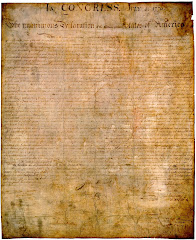
By David McCullough
736pp, Simon & Schuster, $35

reviewed by John Coggin | Yale Review of Books
When David McCullough won the National Book Award in 1981 for Mornings on Horseback, his rendering of Theodore Roosevelt’s struggle to manhood, he said that his childhood in Pennsylvania amid the horror of World War II had spurred his love for history. He then described his undergraduate experience at Yale as the crucial period when he seriously considered writing as a lifelong endeavor. He later concluded that, “one of the lessons of history—one of the lessons of life—is that there is no such thing as a self-made man or woman.” In John Adams, McCullough teaches the significance of this lesson. He studies Adams, a man of honesty and wisdom, so we might learn his story, and then delight in his triumph.
At age 25, John Adams resembled his college friends. Ambitious and vain, he yearned for distinction, but needed “ballast.” “Why have I not genius to start some new thought?” he wondered in his diary. “Let me search for the clue which led great Shakespeare into the labyrinth of human nature. Let me examine how men think.” Adams began writing portraits of “original characters” around his home of Braintree, Massachusetts—brief, poignant sketches of human failure and conquest. McCullough examines Adams with the same tenacity these diary entries display. The historian draws from a marvelous collection of family letters and diaries (especially the voluminous correspondence between John and Abigail) to illuminate the “labyrinth” of John Adams’ mind. McCullough explores his public and private persona with equal vigor, relating even the humiliations that resulted from Adam’s obstinacy and vanity. While depicting these flaws, McCullough reveals that Adams’ abiding honesty and courage carried him from his Massachusetts law practice to the presidency of the United States. McCullough highlights these traits beautifully.
Read more...













